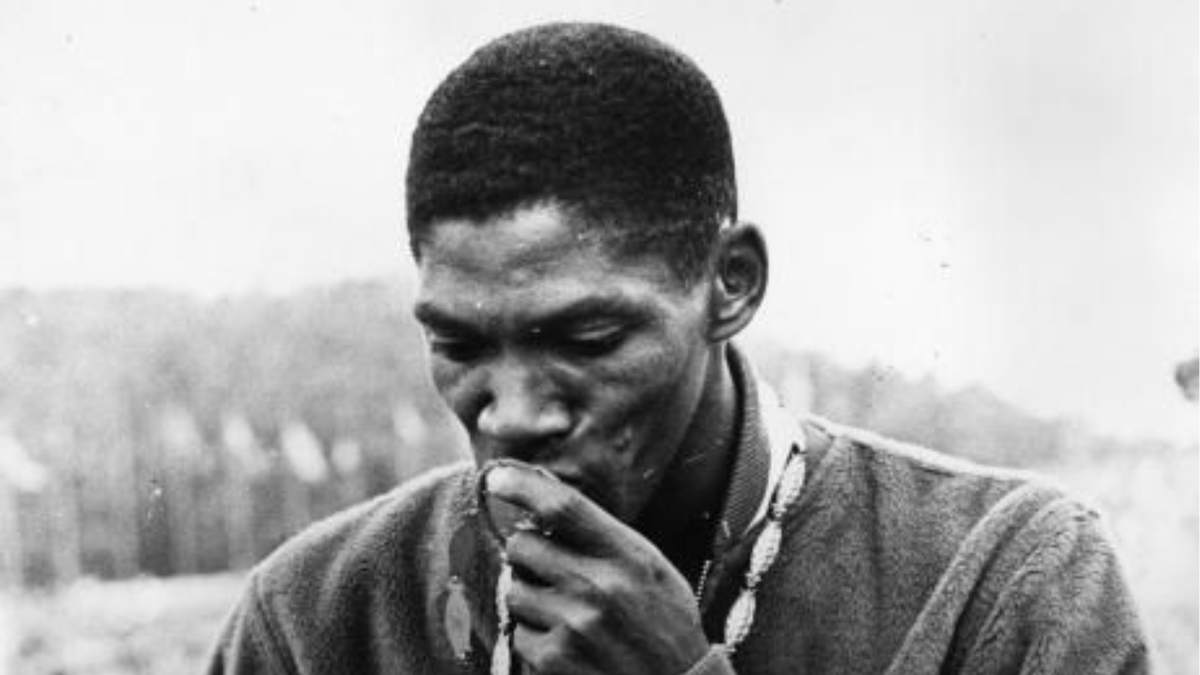

The track & field community went wild when Quincy Wilson clocked an incredible 44.20 seconds in the 400m this year. The 16-year-old high schooler pulled off this stunning feat without worrying about who was in the lane next to him. Naturally, his effort caught a lot of eyes. But among all those fans, one stood out: Otis Davis.
Watch What’s Trending Now!
The two-time Olympic champ reached out to congratulate the youngster, wishing him luck for the Paris Olympics. And who doesn’t know about Wilson’s groundbreaking achievement in the French capital? Just a month later, the young phenom took to Instagram stories to pay tribute to his well-wisher because, sadly, Otis Davis, 92, is no more.
Quincy shared a message from Otis Davis and Jack Fogarty that congratulated him on his 44.20 record in Gainesville and wished him success in Paris, saying, “We’ll be cheering for you along with the entire U.S. track & field community.” Quincy captioned it simply: “Rest in peace Mr. Otis.”
ADVERTISEMENT
According to reports, the 1960 Olympic gold medalist passed away in his sleep on Saturday morning (September 14). Davis was the first track and field athlete to break the 45-second barrier in the men’s 400m sprint. In that epic 1960 Olympic final, he had a photo finish with Carl Kaufmann, but the electronic board showed 44.9 seconds, putting him just ahead of his German rival. With his passing, the track and field world is honoring the legend. One message on X captured the mood perfectly: “Rest in peace.” The loss feels even more poignant, as just on September 6, the community celebrated the anniversary of Davis’s Olympic achievement.

Getty
EUGENE, OREGON – JUNE 23: Quincy Wilson looks on after competing in the men’s 400 meter semi-final on Day Three 2024 U.S. Olympic Team Trials Track & Field at Hayward Field on June 23, 2024 in Eugene, Oregon. (Photo by Christian Petersen/Getty Images)
Otis Davis made history as the University of Oregon’s first Olympic medalist at the 1960 Rome Olympics. The university would have to wait another five decades for their next Oregon Duck to bring home gold—when Ashton Eaton won decathlon gold in London in 2012. But Davis’s path to glory was anything but smooth. He faced rejection from the University of Alabama, which didn’t admit Black students until 1963, a painful experience for Davis, an Alabama native.
ADVERTISEMENT
Undeterred, he found an opportunity at Oregon. Within two years, he clinched double golds at the Rome Olympics in the 400m and 4x400m relay. His win was historic, as breaking the 45-second barrier in the 400m was almost unimaginable. On September 6, 1960, Davis controlled the race, dominating the first 200m and executing a stunning top bend to secure his victory.
Davis’s legacy remains alive today. In 2020, he was honored as one of five athletes depicted on Hayward Field’s tower. He was also inducted into the University of Oregon Hall of Fame in 1992 and the National Track and Field Hall of Fame in 2003. Fans flooded X to commemorate the loss of this trailblazing legend just as Quincy Wilson did.
ADVERTISEMENT
The track & field community comes together alongside Quincy Wilson to mourn the loss of track legend Otis Davis
On this somber day, the University of Oregon’s beloved legend is being honored with the respect he deserves. Posts from his followers reflect his invaluable role at the institute, with comments like, “We are heartbroken to learn of the passing of Otis Davis, our first Olympic gold medalist” and “RIP to a Duck legend.”
Before joining Oregon, Davis served four years in the US Air Force and arrived at the university on a basketball scholarship. However, he found his true passion in track and field, becoming the university’s first Olympic gold medalist. As one fan put it, “A true legend!” Davis was inducted into the National Track and Field Hall of Fame in 2003 and was also a proud member of the University of Oregon Hall of Fame. In 2015, he received the Distinguished Alumni Award from the university.
ADVERTISEMENT
His legacy lives on as one of five icons from Oregon’s track and field program honored on a 10-story tower outside Hayward Field, alongside legends like coach Bill Bowerman, Ashton Eaton, Steve Prefontaine, and Raevyn Rogers. With his passing, the saga of a lifetime has ended. As one fan said, “Goodbye and sweet dreams Mr. Otis Davis #GoDucks.” Thankfully, Quincy Wilson’s tribute ensures that the new generation will remember him for eons to come.
Top Stories
Cowboys Fire Defensive Coordinator Matt Eberflus: Contract, Salary, NFL Earnings & More

Huge Fire Destroys Over 125-Year-Old Golf Club Designed by 5x Open Winner in London – Report

Scottie Scheffler’s Caddie Shares Cryptic Message as He Bids Fans ‘Goodbye’

Russell Wilson Announces Retirement Stance as Giants QB Shares Hidden Injury News

Marina Mabrey Is Raising Eyebrows Again With Fiery Unrivaled Confrontation

Tiger Woods’ Warm Moment With Ex-Wife Elin Nordegren Caught on Camera at Son Charlie’s Junior Event

ADVERTISEMENT
ADVERTISEMENT
ADVERTISEMENT

